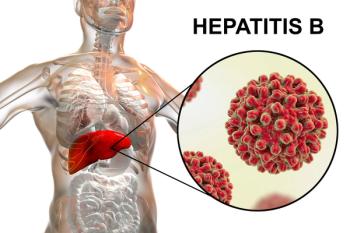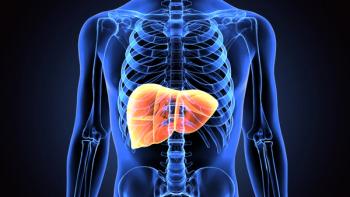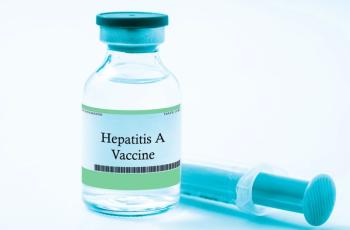
Promising Trial Results for Pegozafermin for NASH
Based on the results published in the New England Journal of Medicine, the FDA has granted breakthrough status to the FGF21 analogue. The drug's maker is planning a phase 3 trial.
Nonalcoholic steatohepatitis (NASH) is a serious liver disease that affects millions of people worldwide, roughly 5.3% of adults globally and 14% of middle-aged adults in the United States. Despite its prevalence, there are currently no FDA approved treatment options available for this NASH. This lack of approved medications leaves many patients searching for alternative solutions and hoping for a breakthrough in medical research.
NASH is a progressive form of nonalcoholic fatty liver disease (NAFLD) characterized by inflammation, liver cell damage and, potentially, fibrosis.It is often associated with obesity, diabetes, and metabolic syndrome and, subsequently, increasing the risk of cardiovascular disease. The rising incidence of NASH has become a significant public health concern, with experts predicting it to become the leading cause of liver transplantation.
Otherwise referred to as silent diseases with very little symptom involvement, individuals who are overweight, have type 2 diabetes or have a family member with NAFLD are at a higher risk of developing the disease. NAFLD — which is a broad term for a range of liver conditions affecting people who do not consume large amounts of alcohol — can lead to cirrhosis, liver cancer and liver failure.
While lifestyle modifications, such as weight loss and exercise, are recommended as the first-line treatment for NASH, they may not be enough for all patients. The absence of FDA approved medications for NASH highlights the urgent need for effective therapies to combat this debilitating disease.
Rohit Loomba, M.D., and colleagues at the University of California San Diego School of Medicine have conducted a study on a potential new treatment for patients with NASH and its related fibrosis. The results, published June 2023 in the
Based on the results, the FDA granted breakthrough status pegozafermin in late September. In a
The company-sponsored randomized, controlled trial investigated the efficacy and safety of the FGF21 analogue pegozafermin in patients with NASH. The study aimed to assess the impact of pegozafermin on fibrosis improvement and NASH resolution without worsening of fibrosis in patients with biopsy-proven noncirrhotic NASH.
The study involved 222 participants with biopsy validated NASH and stage F2 or F3 fibrosis. The primary endpoints were fibrosis improvement and NASH resolution without worsening of fibrosis at 24 weeks. Safety was also assessed. Further research is planned to assess the safety and effectiveness of the drug in anticipated phase three trials.
Results showed that treatment with pegozafermin led to significant improvements in fibrosis. The percentage of patients meeting the criteria for fibrosis improvement was higher in the pegozafermin groups compared with the placebo group. Specifically, the 15-mg pegozafermin group had a 14 percentage point difference, the 30-mg group had a 19 percentage point difference, and the 44-mg group had a 20 percentage point difference compared with placebo.
Similarly, the percentage of patients meeting the criteria for NASH resolution without worsening of fibrosis was significantly higher in the pegozafermin groups compared to the placebo group. The 15-mg group had a 35 percentage point difference, the 30-mg group had a 21 percentage point difference, and the 44-mg group had a 24 percentage point difference compared to placebo.
The most common adverse events associated with pegozafermin therapy were nausea and diarrhea.
These positive findings will help push pegozafermin into phase 3 development.
In accompanying editorial,
“Although the planned 24-week open-label extension in this trial will provide insight into the durability of response to pegozafermin, even a 48-week period may be too short to assess the durability of response for this or any other FGF21-based therapy,” wrote Rinella.
Newsletter
Get the latest industry news, event updates, and more from Managed healthcare Executive.























